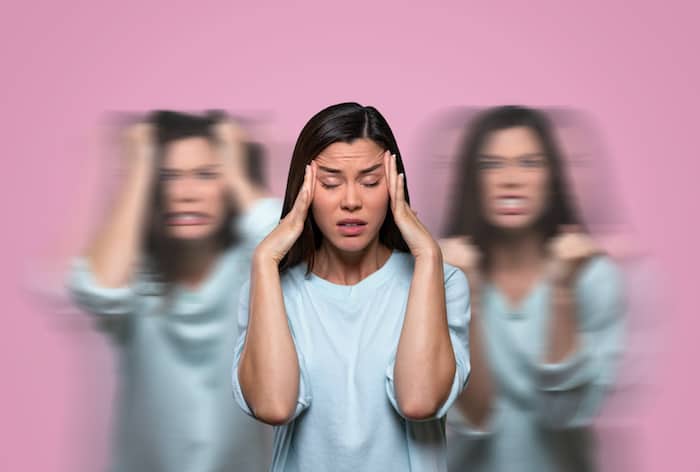It’s normal to feel nervous when you encounter a massive change in your lifestyle or make big decisions that will affect your future. However, constantly feeling stressed out or anxious about too many things in your life may turn into anxiety disorders, or be the by-product of one.
It’s vital for those living with anxiety disorders to look for treatments or strategies that can help reduce or manage the condition in the long run. If left untreated, anxiety can affect your wellbeing and may hinder your work and personal life.
Of course, there are various ways to help you feel less anxious and keep it under control. Lifestyle changes and incorporating various stress-relieving activities in your daily routine may help you ease your anxiety.
You can try the following activities to relax your mind and take control of your condition:
- Meditation
Meditation is believed to help people who suffer from anxiety to better manage their thoughts and feelings. You can try to minimize your stress and anxiety with proper breathing and meditating exercises.
To start meditation, first, find a comfortable position, and relax your body. Start by taking deep breathes while focusing on your thoughts. Meditating regularly will help you get in touch with your thoughts and feelings, which may help you feel more at ease.
Deep breathing exercises also help stimulate the parasympathetic nervous system and increase the blood’s oxygen, which can all help reduce anxiety.
- Anxiety Medications
People who experience anxiety often take medications to manage their condition. There are different medications available on the market for anxiety disorders, which usually prescribed after a doctor’s consultation.
In addition to medications, supplements like bromantane may help to reduce your stress and anxiety levels. Bromantane works by helping regulate the production of certain hormones such as dopamine and serotonin in the body. You can read what WholisticResearch wrote about bromantane if you want to learn more about this supplement, and remember to always consult with your doctor before adding any new medications or supplements to your health regimen.
- Regular Exercise
It’s no question that regular exercise has a lot of positive effects on the body. Not only will it keep you fit, but it may also help manage your anxiety.
Frequent physical activity may increase the endorphins in your system, which is the body’s natural pain killer. This particular hormone can help elevate your mood and make you feel less anxious.
If you are not too fond of high-intensity exercises, you can try less strenuous workouts like yoga or pilates. These workouts also incorporate breathing techniques, which may also help keep your anxiety under control.

- Therapist Consultations
Discussing your condition with an expert can also reduce the anxiety you are experiencing. People who suffer from stress and anxiety disorders can see a therapist and receive professional help for their situation.
You may feel relieved after talking to someone about your current situation. An expert can also provide advice on how you can handle stressful situations in your life better. By talking and consulting with someone, you can feel more at ease and think that someone supports your journey to recovery.
- Aromatherapy
The use of essential oils can also reduce your stress and anxiety levels. Certain oils like lavender rose, orange or roman chamomile can help you feel more relaxed, which may ease your anxiety.
You can start your day with a few minutes of aromatherapy, and, if you want, you can also incorporate breathing exercises during your session to help calm both your mind and body. This way, you can prepare yourself for the day ahead without feeling too nervous or too stressed out.
- Diet Changes
Certain foods and drinks may also affect your mood levels. For instance, excessive amounts of caffeine may make you feel jittery, nervous, or anxious. You should be more mindful of what you consume, especially if it can affect how your body reacts to external stimuli.
Try to limit your caffeine and sugar consumption since both may increase your blood pressure, which can worsen your stress and anxiety.
- Journal Writing
It may help you manage your anxiety better if you write down what you’re feeling. Recording what you’re stressed about may help you understand your thoughts and emotions more systematically. You can also write what you’re thankful for so you can focus more on your life’s positive aspects instead of the negative ones. By doing this activity, you will learn how to deal with stressful situations better.
Final Thoughts
Anxiety can affect your work and personal life if you don’t do anything about it. Although it can be challenging to live with stress and anxiety, there are simple ways to reduce the pressure you’re feeling.
Exercise, meditation, and consulting with a professional may help you deal with your condition better. By taking actions to address your anxiety, you can improve your overall quality of life.
The Editorial Team at Healthcare Business Today is made up of skilled healthcare writers and experts, led by our managing editor, Daniel Casciato, who has over 25 years of experience in healthcare writing. Since 1998, we have produced compelling and informative content for numerous publications, establishing ourselves as a trusted resource for health and wellness information. We offer readers access to fresh health, medicine, science, and technology developments and the latest in patient news, emphasizing how these developments affect our lives.








